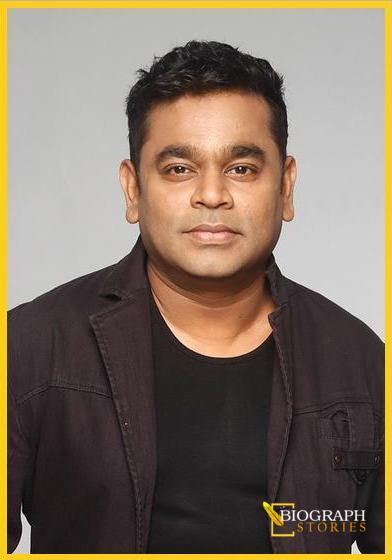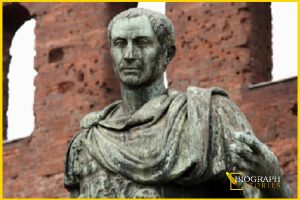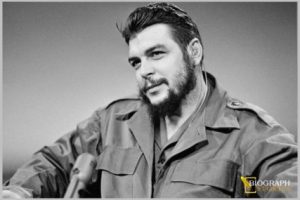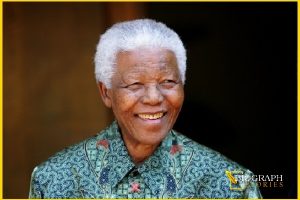
A. R. Rahman Quick Facts:
Born : January 6, 1967 (age 52)
Occupation: Singer, song writer, music director, arranger, film director, film producer
Years active : 1992–present
A. R. Rahman’s Biography:
Allahrakka Rahman (brought into the world A. S. Dileep Kumar; conceived January 6, 1967). He is nicknamed “Isai Puyal”(English: the Musical Storm) and “Mozart of Madras”. Working in India’s film ventures, global film, and theater, Rahman is extraordinary compared to other selling recording craftsmen, with an expected 150 million units sold around the world. Rahman has additionally turned into a remarkable helpful and giver, giving and fund-raising for various causes and philanthropies. In 2017, Rahman made his introduction as an executive and essayist for the film Le Musk.
A. R. Rahman’s Early life:
Rahman was conceived in Madras, India. His dad, R. K. Shekhar, was a film-score writer and conductor for Tamil and Malayalam films; Rahman helped his dad in the studio, playing the console.
After his dad’s passing when Rahman was nine years of age, the rental of his dad’s melodic hardware gave his family’s salary. Raised by his mom, Kareema (conceived Kashturi), Rahman, who was concentrating in Padma Seshadri Bala Bhavan needed to work to help his family.Rahman started his initial melodic preparing under Master Dhanraj, and at age 11 started playing in the ensemble of Malayalam author (and dear companion of his dad) M. K. Arjunan. He before long started working with different writers, for example, M. S. Viswanathan, Ilaiyaraaja, Ramesh Naidu and Raj-Koti,[24] went with Zakir Hussain, Kunnakudi Vaidyanathan and L. Shankar on world visits and acquired a grant from Trinity College London to the Trinity College of Music.
Examining in Madras, Rahman graduated with a certificate in Western traditional music from the school. Rahman was acquainted with Qadiri tariqa when his more youthful sister was genuinely sick in 1984. His mom was a rehearsing Hindu. At 23 years old, he changed over to Islam with different individuals from his family in 1989, changing his name to Allahrakka Rahman (A. R. Rahman).
A. R. Rahman’s Career:
- Soundtracks
The year 2014 would one say one was of the busiest years for Rahman, with him professing to have worked in 12 movies in different dialects? While his first discharge for the year was the Imtiaz Ali’s street motion picture Highway which earned positive audits, his extremely next discharge was the exhibition caught activity movie Kochadaiiyaan, a Rajinikanth starrer coordinated by Soundarya Rajinikanth. The film’s score and soundtrack accumulated colossal basic assess with its score being for some time recorded at the inevitable Academy Awards.[82] His next were the scores for the two consecutive Hollywood movies, Million Dollar Arm and The Hundred Foot Journey, the two of which got into the fought rundown for the first score class selection at the Oscars.
This was trailed by the exceptionally effective soundtrack collection for the period show Kaaviya Thalaivan collaborating with chief Vasanthabalan just because. His next discharge was Shankar’s otherworldly spine chiller I and K. S. Ravikumar’s period activity film Lingaa, the two of which were profoundly acclaimed and acknowledged upon discharge.
Ø Background scores
Aside from fruitful soundtracks, he has additionally gotten approval for his experience scores and is viewed as one of the best foundation score writers in India. His experience scores are frequently described by the utilization of inconspicuous coordination and encompassing sounds. Prepared in western old style music, he frequently utilizes contemporary instruments, for example, Guitars, Cello, Flute, Strings, Keyboard, Finger board, Harpejji, Santoor and conventional Indian instruments, for example, Shehnai, Sitar, Mrudangam, Veenai and Tabla to make scores.
Aside from getting great audits, a few of Rahman’s experience scores have earned him numerous lofty honors extending from Academy grants to Filmfare grants. In 2017 his Mersal (film) music’s experience score has dazzled the whole gang. In 2018, Rahman got national honor for the foundation score of Mom (2017 film)
Ø Performing and other projects
Rahman has additionally been engaged with non-film ventures. Vande Mataram, a collection of unique structures discharged for India’s 50th commemoration of its autonomy in 1997, is one of India’s top rated non-film collections. He tailed it with a collection for the Bharat Bala–coordinated video Jana Gana Mana, a gathering of exhibitions by driving examples and specialists of Indian traditional music. Rahman has composed promoting jingles and arrangements for athletic occasions, TV and Internet media, documentaries and short movies, every now and again utilizing the Czech Film Orchestra and the Chennai Strings Orchestra.
In 1999, Rahman collaborated with choreographers Shobana and Prabhu Deva and a Tamil film-moving troupe to perform with Michael Jackson in Munich, Germany at his Michael Jackson and Friends show. In 2002 he created the music for his first stage generation, Bombay Dreams, which was dispatched by Andrew Lloyd Webber. The Finnish people music band Värttinä worked together with Rahman on the Toronto generation of The Lord of the Rings, and in 2004 he created “Raga’s Dance” for Vanessa-Mae’s collection Choreography (performed by Mae and the Royal Philharmonic Orchestra).
A. R. Rahman’s Musical style and impact:
During the 1980s Rahman recorded monaural courses of action in the same manner as his melodic antecedents, K. V. Mahadevan and Vishwanathan–Ramamoorthy. In later years his technique changed, as he explored different avenues regarding the combination of conventional instruments with new electronic sounds and innovation.
Rahman’s melodic advantages and viewpoint begin in his affection for experimentation. His organizations have an auteuristic utilization of contradiction, coordination and the human voice, merging Indian popular music with a one of a kind timbre, structure and instrumentation. With this syncretic style and wide-extending verses, the intrigue of Ra Personal life
Rahman is hitched to Saira Banu (not to be mistaken for on-screen character Saira Banu); they have three kids: Khatija, Rahima and Ameen. Ameen has sung “NaNa” from Couples Retreat, and Khatija has sung “Pudhiya Manidha” from Enthiran. Rahman is the uncle of arranger G. V. Prakash Kumar, the child of his senior sister A. R. Reihana. Rahman’s more youthful sister, Fathima, heads his music studio in Chennai. The most youthful, Ishrath, has a music studio. A.R.Rahman is the co-sibling of film on-screen character Rahman.
Brought into the world Hindu, Rahman changed over to Islam when he was in his 20s. After the early passing of his dad, his family experienced troublesome occasions; Sufism affected his mom who was a rehearsing Hindu and, in the end, his family. During the 81st Academy Awards function Rahman paid tribute to his mom: “There is a Hindi discourse, negligible pass mama hai, which signifies ‘regardless of whether I have nothing I have my mom here’.” He stated, “Ella pughazhum iraivanukke” (“All acclaim to God” in Tamil, an interpretation from the Quran) before his discourse.
A. R. Rahman’s Philanthropy:
Rahman is engaged with various altruistic causes. In 2004 he was delegated as the worldwide minister of the Stop TB Partnership, a WHO venture. Rahman has bolstered Save the Children India and worked with Yusuf Islam on “Indian Ocean”, a tune including a-ha console player Magne Furuholmen and Travis drummer Neil Primrose. Continues from the tune went to help vagrants in Banda Aceh who were influenced by the 2004 Indian Ocean Tsunami. He delivered the single “We Can Make It Better” by Don Asian with Mukhtar Sahota. In 2008 Rahman opened the KM Music Conservatory with a sound media instruction office to prepare hopeful artists in vocals, instruments, music innovation and sound plan. The center (with noticeable performers on staff and an ensemble symphony) is situated close to his studio in Kodambakkam, Chennai and offers courses at a few levels. Musician L. Subramaniam is on its warning board. A few of Rahman’s proteges from the studio have scored highlight films. In 2009, he established Sunshine Orchestra with a dream to present India’s first ensemble symphony where financially and socially denied youngsters get free music training by the KM Music Conservatory. He made the signature music for a 2006 short film for The Banyan to help poor ladies in Chennai.
In 2008 Rahman and noted percussionist Sivamani made a melody, “Jiya Se Jiya”, enlivened by the Free Hugs Campaign and advanced it with a video shot in various Indian urban areas for a reason.
A. R. Rahman’s Awards: A. R. Rahman is an Indian arranger, vocalist and lyricist. Portrayed by Time as one of the most famous writers, he has given melodic scores overwhelmingly to Tamil and Hindi movies separated from a couple of movies in other local film businesses of India and worldwide creations. Rahman began his vocation by forming melodic scores for documentaries, notices and Television stations. He made his introduction as a movie author through Roja subsequent to being drawn closer by its executive Mani Ratnam. The soundtrack ended up famous upon discharge, which prompted him winning the National Film Award for Best Music Direction at the 41st National Film Awards, the first run through for a debutant. Starting at 2018, Rahman has earned six National Film Awards, 15 Filmfare Awards and 17 Filmfare Awards South, a record for an Indian writer.








